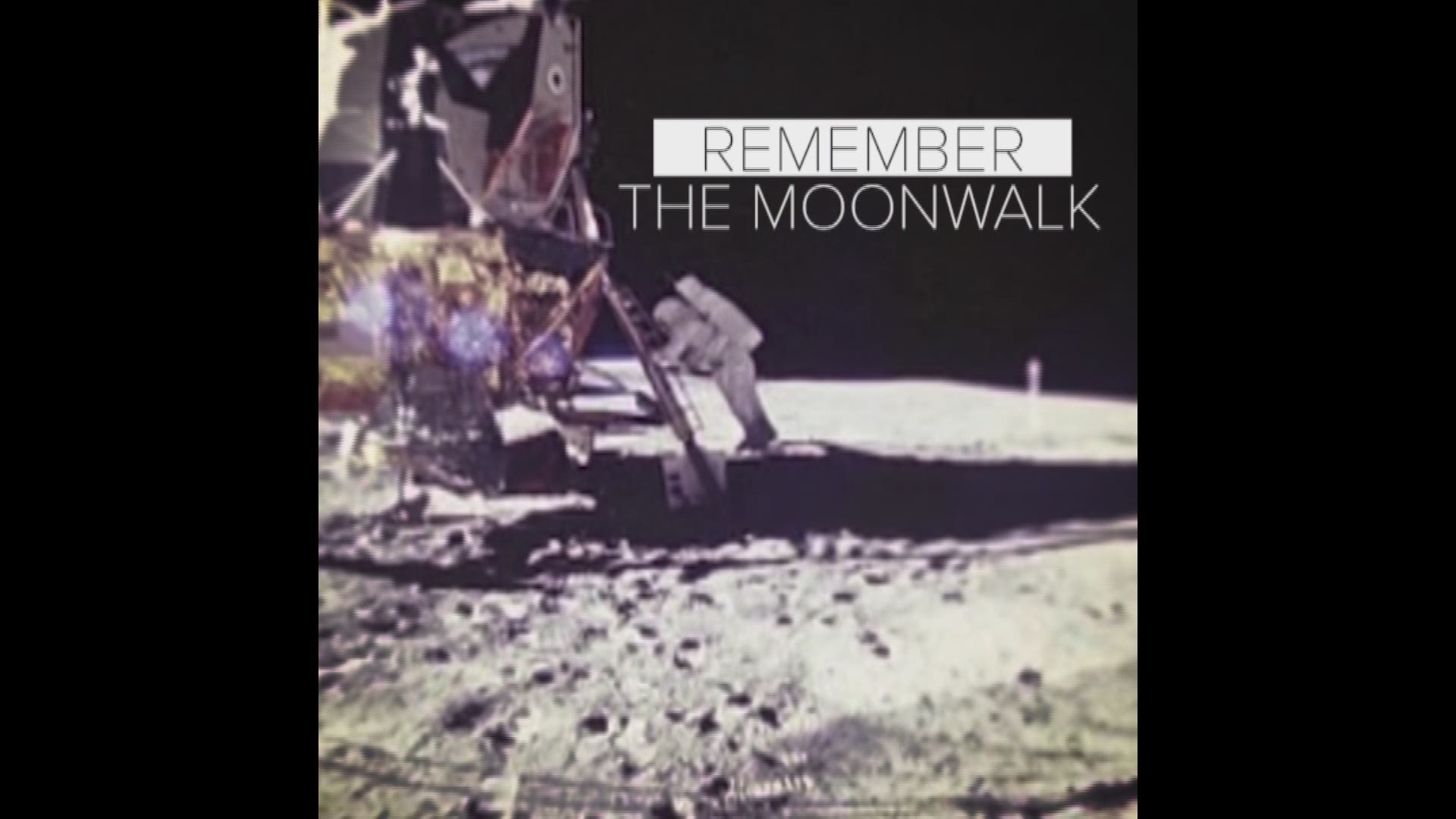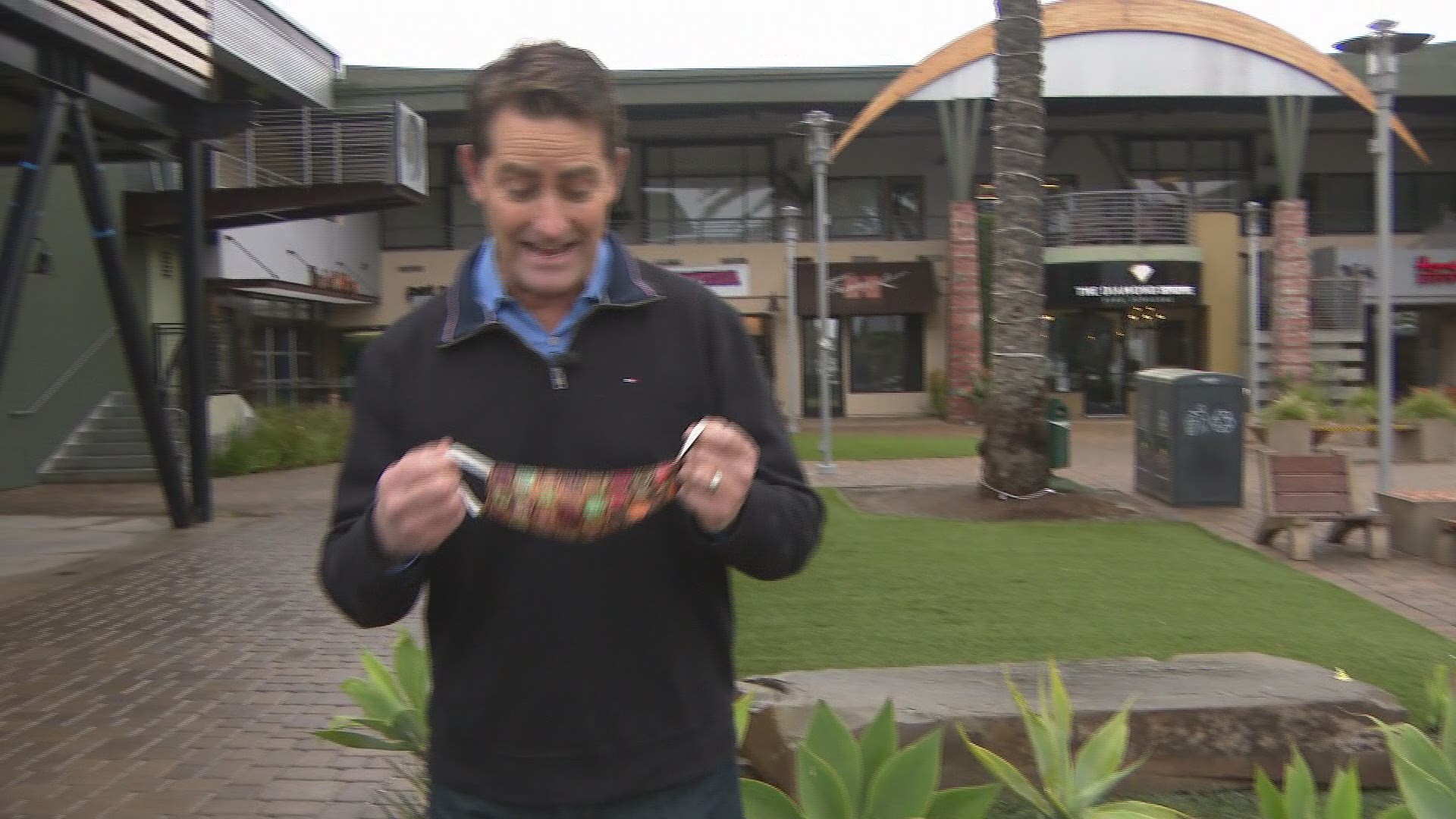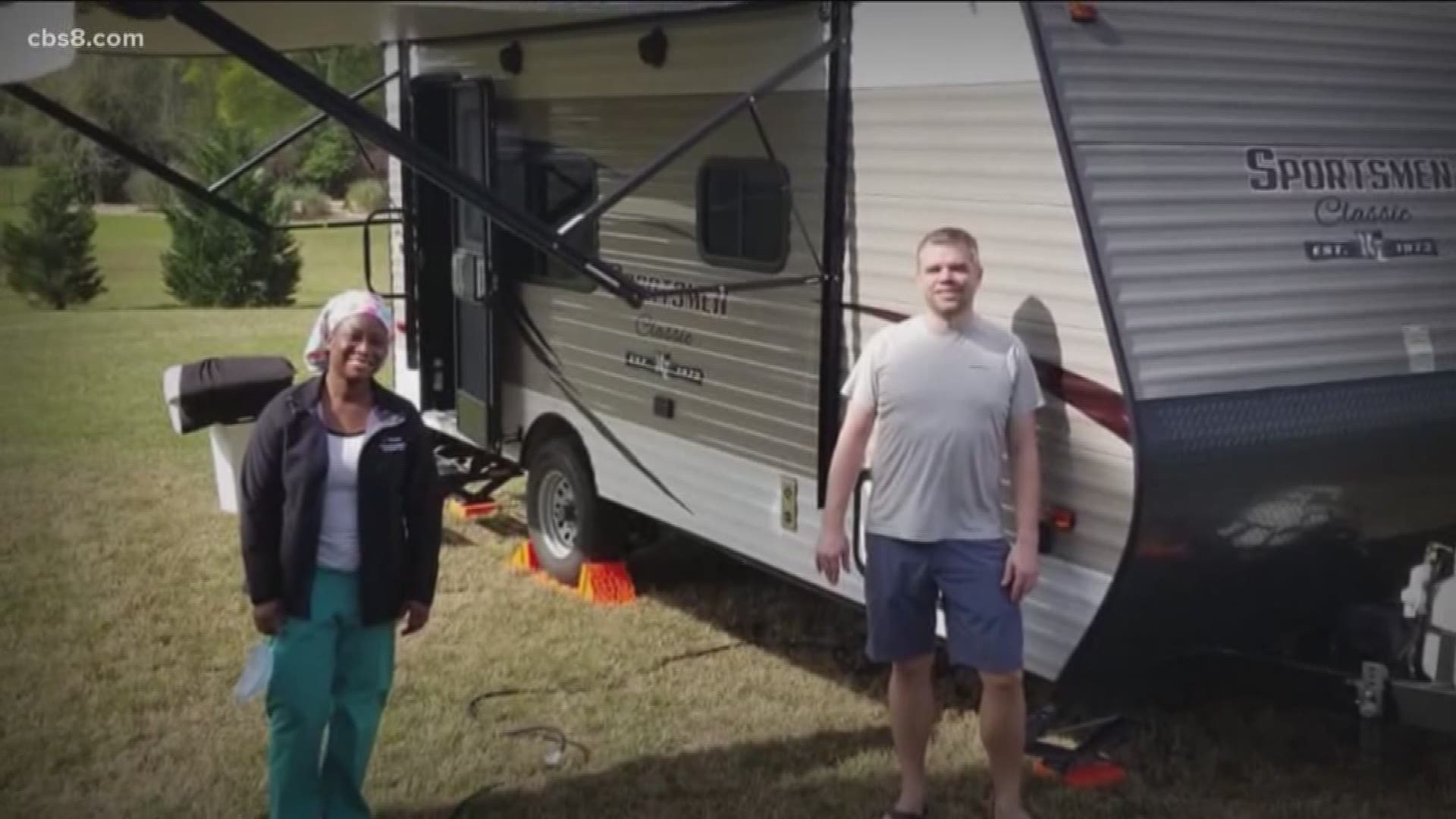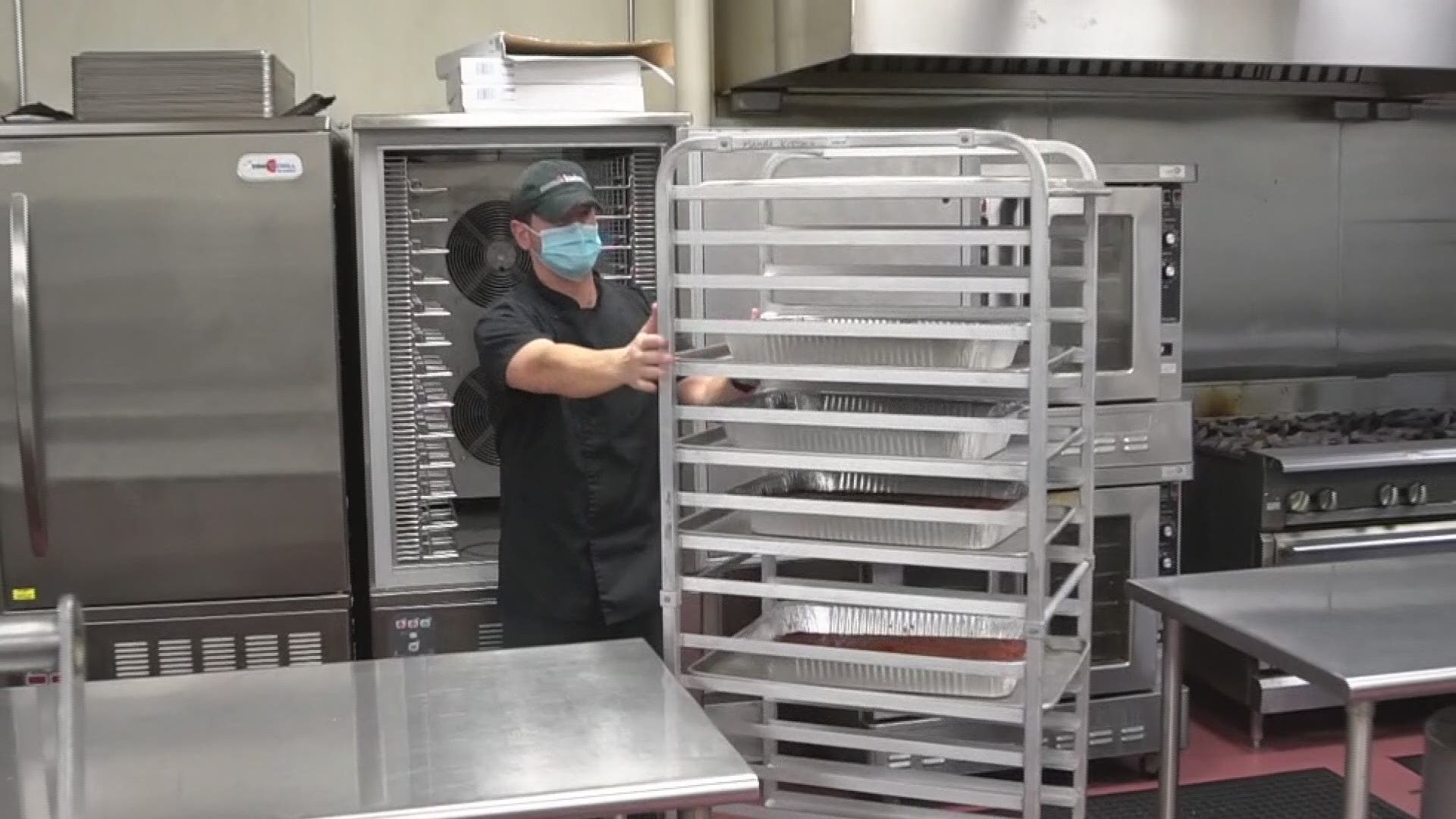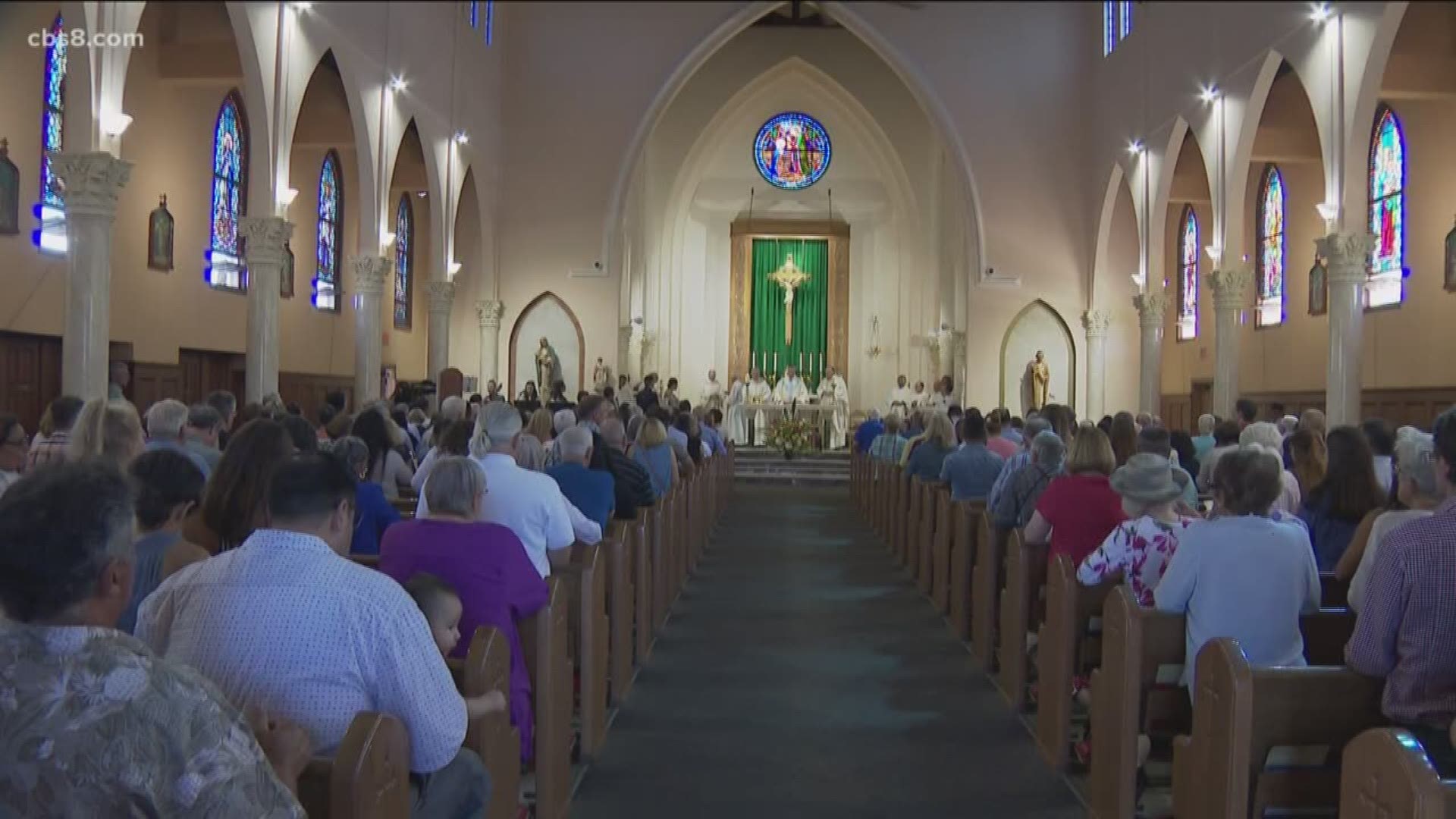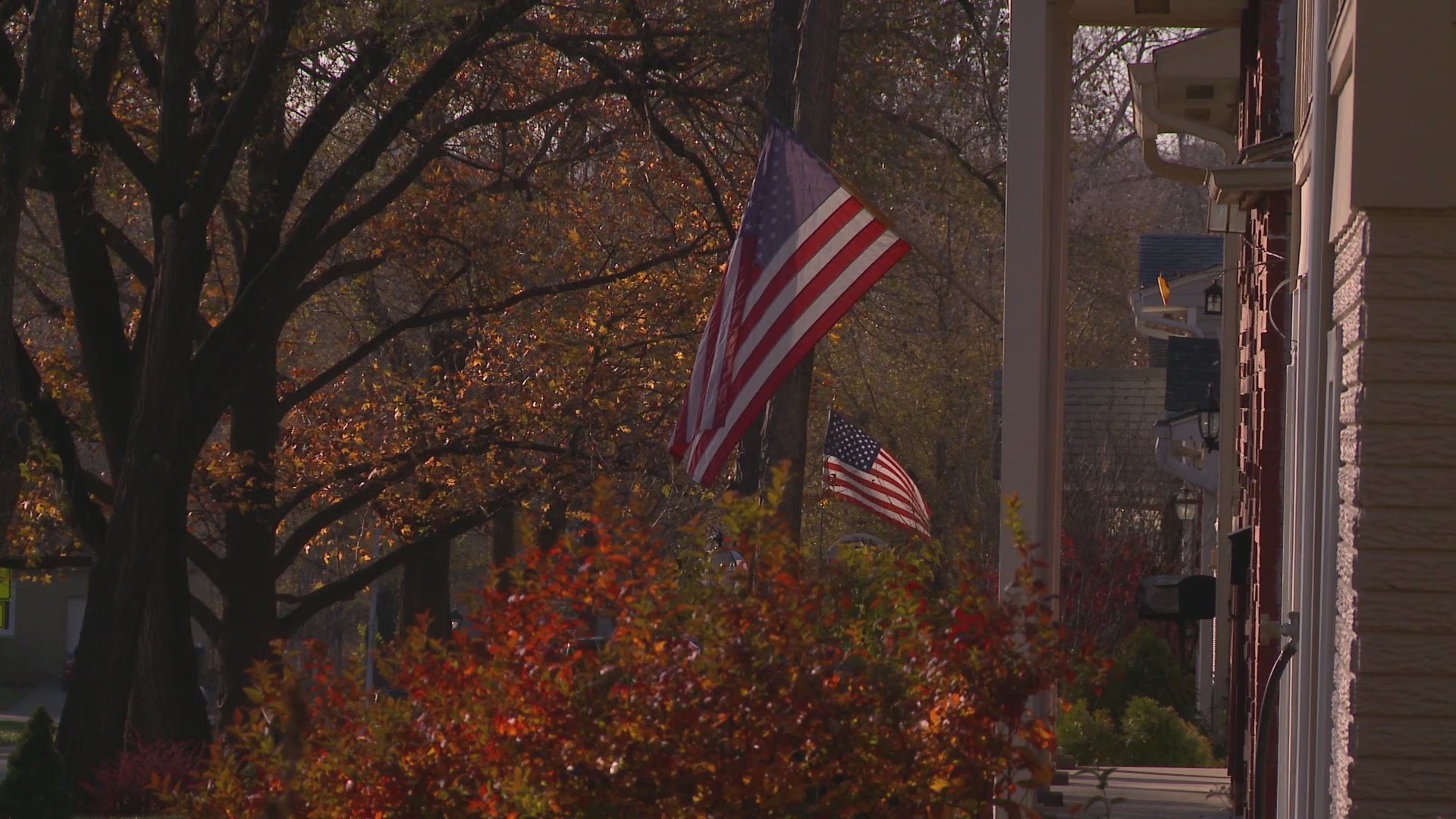'Send the Love' to your unsung hero and News 8 will put them on television
"Send the Love" is a News 8 community campaign that gives you the opportunity to send a "shout out" and "thank you" to an unsung hero working to keep our community strong. In this Zevely Zone, Jeff went to Cardiff to honor some local heroes.
He kicked things off by saying "thank you" to Colleen Stanich, a woman who sewed a mask to keep him safe.

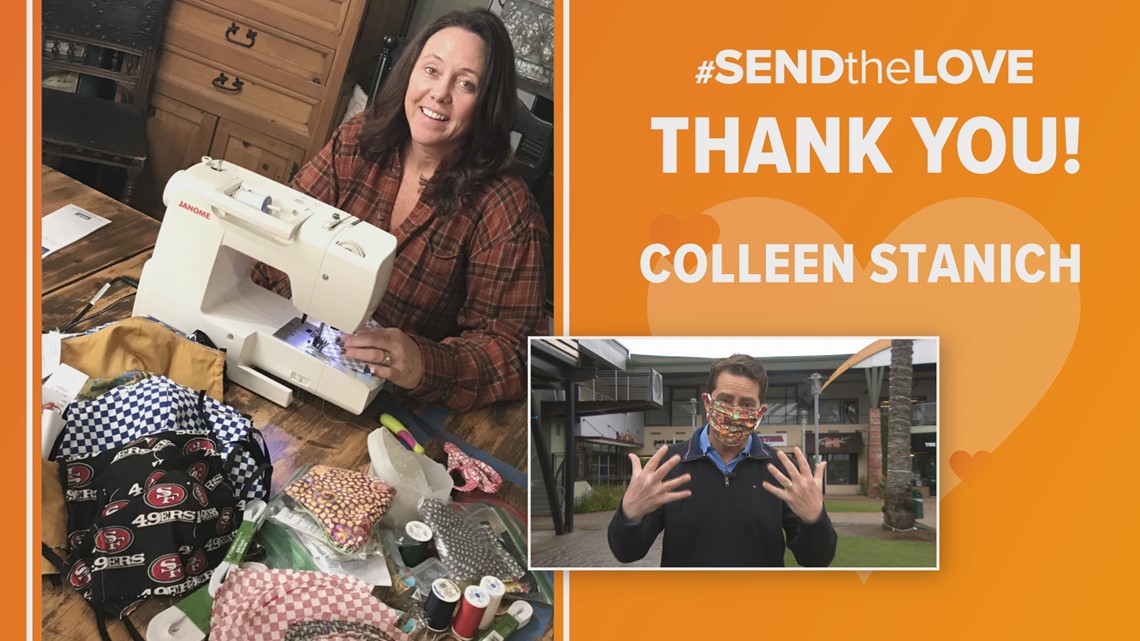
If you have someone you'd like to Send the Love to, all you need to do is TEXT a picture of your hero to 858-571-8888. Make sure to include the person's name and what they do or you can send the picture in a message to the CBS 8 Facebook page.
'RVs 4 MDs' giving San Diego doctors a safe place to stay during coronavirus pandemic
The nationwide movement to give health care workers a safe place to stay is also helping San Diegans on the front lines fighting the coronavirus.
RVS 4 MDS matches recreational vehicle owners with medical workers in hopes of minimizing exposure and the chances of bringing the virus into their home.
“I don't even have the words for all the family and friends that have reached out to see how they can help us, go grocery shopping for us. Now we have this extra shelter in place to try and minimize and mitigate the exposure to our loved ones,” said Dr. Connie Miller.
Dr. Miller is an emergency medicine physician with Kaiser Permanente in San Diego. Her husband is also an E.R. doctor at another hospital.
For weeks they’ve been weighing their options on how to quarantine to minimize exposure to keep themselves, their children, and patients safe.
An option that came across Dr. Miller’s Facebook page was RVS 4 MDS.
The page matches doctors and health care workers with the Renfro's in La Mesa. The couple had renovated their Keystone Cooper Canyon travel trailer but were not using it.
“Hotels, not a lot, are giving away hotel rooms for free. People are sleeping out of their garages because they are scared. They don’t know and they don’t want to risk it. No one should have to do that,” said Jamie Renfro.
Mama's Kitchen delivering meals to critically ill San Diegans amid coronavirus pandemic
The coronavirus is challenging our community more than ever.
In this Zevely Zone, I profile Mama's Kitchen, a nonprofit organization that is rising to meet those challenges by delivering record amounts of meals in a non-contact process.
"We are working around the clock trying to take care of San Diegans who need food," said Executive Chef Jason Martin.
A few days ago, Mama's Kitchen delivered 4,500 meals in one day. Imagine signing up to deliver a meal to someone you love and then increasing that order to nearly 12,000 meals a week.
"Our clients are critically ill so normally it would be a problem for them to be out at the grocery store. Under the circumstances with COVID, they just can't take that risk," said Martin.
Mama's Kitchen delivers food to San Diego County's most vulnerable people battling cancer, heart disease and other illnesses. For Jason Martin his motives are personal.
"I lost my mom to cancer," he said.
Mama's Kitchen was established in 1990 by a San Diego caregiver who enlisted volunteers to prepare and deliver free meals to neighbors who were sick with HIV/AIDS and unable to cook for themselves.
San Diego healthcare worker laminates smiling photo on protective gear, sparking others to follow suit and comfort patients
Some healthcare workers on the front lines are sharing reassuring smiles with their patients in a heartwarming way.
Robertino Rodriguez, a respiratory therapist at Scripps Mercy Hospital in San Diego, said he felt badly for patients in the Emergency Room who had to meet him with his face covered in personal protective equipment, also known as PPE.
In his Instagram post, which has since gone viral, he wrote, "A reassuring smile makes a big difference to a scared patient. So today I made a giant laminated badge for my PPE. So my patients can see a reassuring and comforting smile."
Rodriguez posted a photo of himself dressed in full PPE with a large photo of his smiling face affixed to the outside of his protective clothing. He said he wipes down the large, laminated photo with disinfectant between each patient.
Derek Devault, a nurse in Pasadena who works with dialysis patients, saw the post, which inspired him and a few of his coworkers to do the same thing.

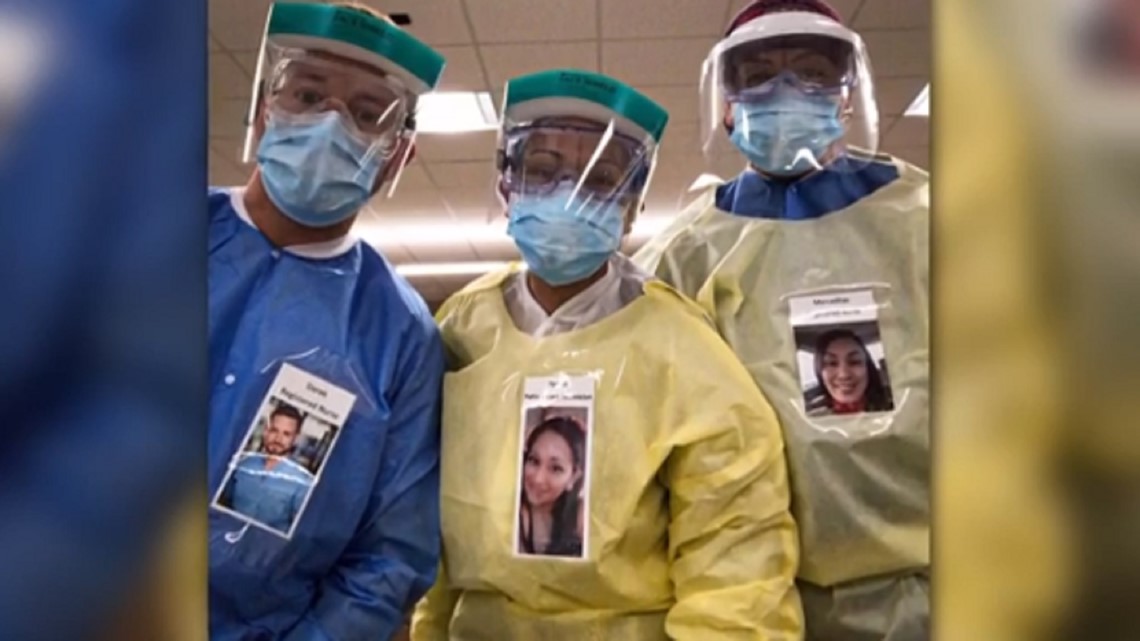
California to provide frontline health care workers with hotel rooms, flights at no-or low cost
Governor Gavin Newsom provided his daily update on COVID-19 for California Thursday. Starting Friday, Newsom announced that California will provide frontline health care workers with hotel rooms at no-or low cost and free flights for California’s Health Corps.
Newsom said vouchers will be provided to health care workers with 100% reimbursement so that they don’t have to worry about out-of-pocket costs during the coronavirus crisis. More information can be found at caltravelstore.com.
Newsom also spoke about people who have reached out to him concerned about California’s willingness to lend ventilators to other states.
“It was the right thing to do and the responsible thing to do in order to help save the lives of all Americans throughout the country,” Newsom said.
RELATED: California to provide frontline health care workers with hotel rooms, flights at no-or low cost
5 Scripps Health Hospital campuses now equipped with rapid COVID-19 tests
Five Scripps Health hospital campuses in San Diego County are now equipped with a point-of-care test that can detect coronavirus in as little as five minutes.
The test, which will be used to screen for COVID-19 in hospitalized patients requiring quick diagnostic turnaround, can deliver a positive result in as little as five minutes and a negative result in 13 minutes, a hospital statement said Thursday. The diagnostic tool received emergency-use authorization from the Food and Drug Administration on March 27.
San Diego County officials have expanded a public health order requiring facial coverings for additional essential employees.
County Supervisor Nathan Fletcher announced Thursday that bank employees, public transportation workers and childcare providers who serve food must now wear non-medical grade facial coverings at work. Public transportation includes public employees such as those working for the Metropolitan Transit System, but also includes drivers for Uber and Lyft and cab drivers.

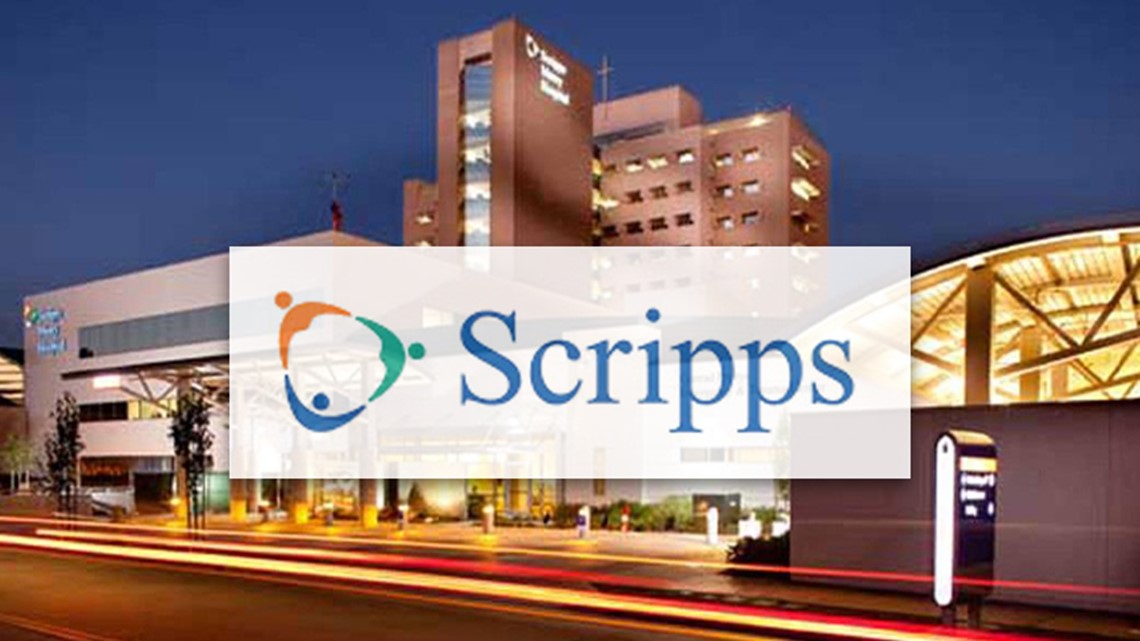
Easter, Holy Week, Passover services go digital during COVID-19
It's an important week for many world religions, and because of social distancing orders, religious services celebrating Easter, Holy Week, and Passover are going digital.
For the Jewish community, Passover celebrates the exodus from slavery and rebirth.
For many San Diego Catholics, this will be a Lent to remember.
“Lent is supposed to be about sacrifice and contemplation and let’s face it, we have had a lot to contemplate and sacrifice,” said Kevin Eckery, Catholic Diocese of San Diego spokesperson.
The Catholic Diocese of San Diego will continue to hold mass services online throughout Holy Week in English, Spanish, and Vietnamese.
San Diego County health officials said that despite the number of COVID-19 cases not drastically increasing, every one needs to avoid any large gatherings - including religious services.
“I want to encourage everyone no matter what your religion to please continue to avoid public gatherings,” said Greg Cox, San Diego County Board of Supervisors Chairman.
No matter your religion, faith leaders said during this time it’s about being self-sufficient in your faith.
Here are 10 ways to help people in your community during the pandemic 💛

View all News 8 coverage of coronavirus / COVID-19
News 8 has joined forces with The San Diego Foundation to raise immediate, emergency funds for our most vulnerable neighbors in need. Here is how you can help.
We also have a Frequently Asked Questions page we will continue updating with the latest information and reports.
Click here to watch "Facts Not Fear," a News 8 Special on coronavirus from March 26, 2020.
BACKGROUND
According to the CDC, coronavirus (COVID-19) is a family of viruses that is spreadable from person to person. Coronavirus is believed to have been first detected in a seafood market in Wuhan, China in December 2019. If someone is sick with coronavirus, the symptoms they may show include mild to severe respiratory illness, cough, and difficulty breathing.
Currently, there is no vaccine, however, the CDC suggests the following precautions, as with any other respiratory illness:
Know how it spreads
There is no vaccine
The best way to prevent illness is to avoid being exposed to the virus
It is thought to spread mainly from person-person between people in close contact
And believed to be spread by respiratory droplets produced when an infected person coughs or sneezes
Protect yourself
Wash your hands with soap and water for a minimum of 20 seconds
If soap and water aren't available, use hand sanitizer that contains at least 60% alcohol
Avoid touching your eyes, nose, and mouth
Avoid close contact with people who are sick
Put distance between yourselves and others
Protect others
Stay home when you are sick
Wear a facemask if you are sick
Cover your cough or sneeze with a tissue, then throw the tissue in the trash
If you don't have tissue, cough or sneeze into the inside of your elbow
Immediately wash your hands after coughing and sneezing
Clean and disinfect frequently touched objects and surfaces using a regular household cleaning spray or wipe
You can find information on disinfecting and cleaning on the CDC's How to Protect Yourself page.
The California Department of Public Health has issued guidance on the use of cloth face coverings to protect against the spread of the novel coronavirus COVID-19.
The County of San Diego has made face coverings mandatory for those working with the public including grocery stores, pharmacies, gas stations, convenience stores, and similar businesses.
While officials say these face coverings are not a substitute for practices like social distancing and handwashing, there is evidence to suggest that the use of cloth face coverings by the public during a pandemic could help reduce disease transmission. Officials do not recommend the public use N-95 or surgical masks which are needed by health care workers and first responders.

